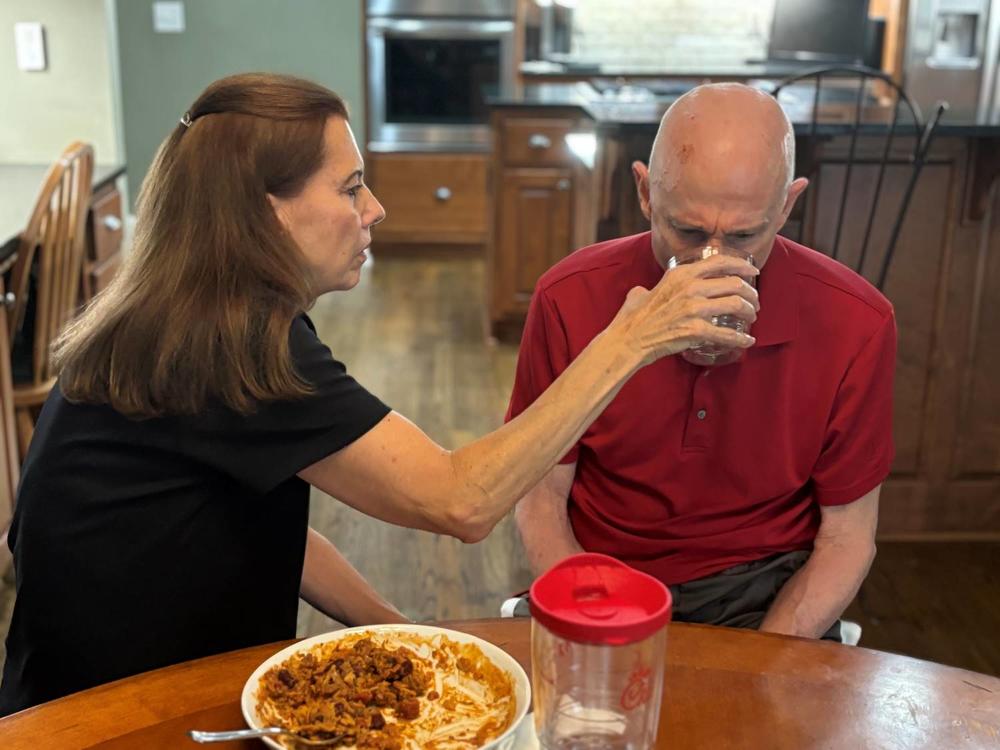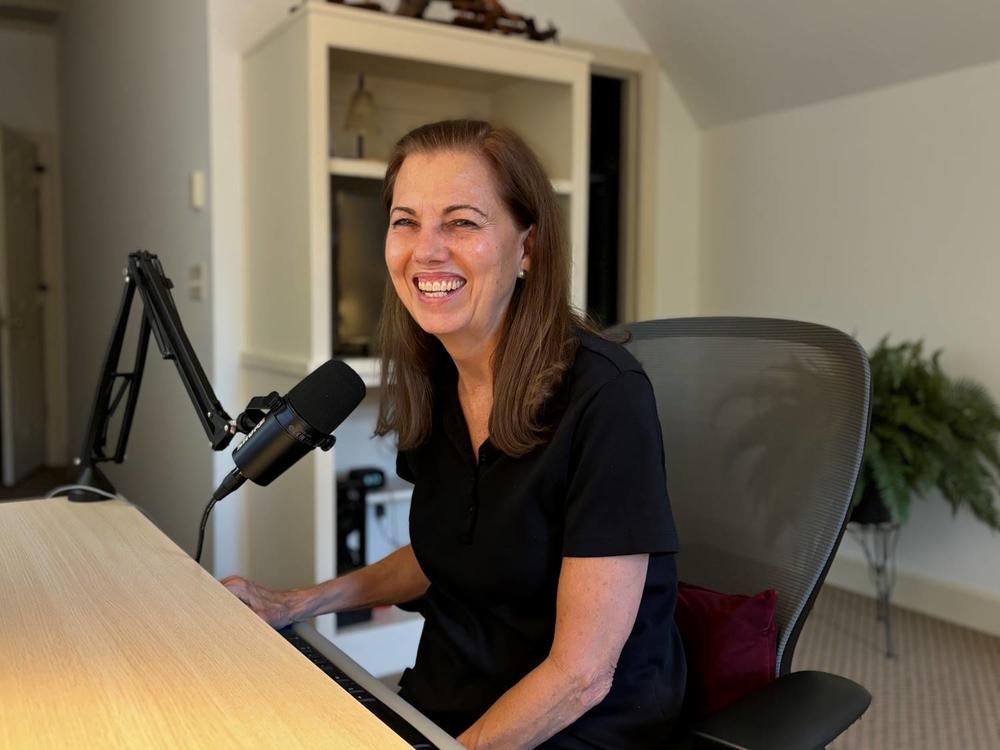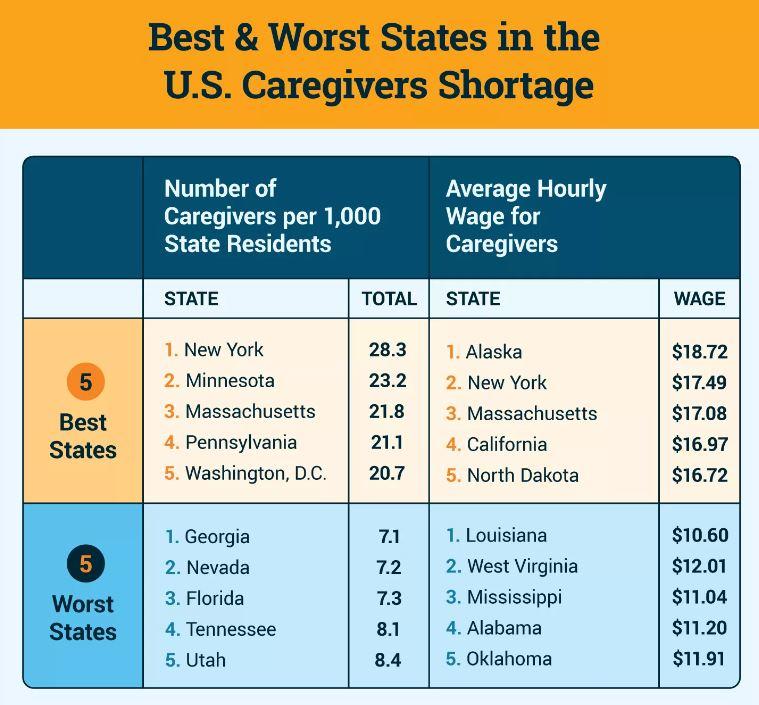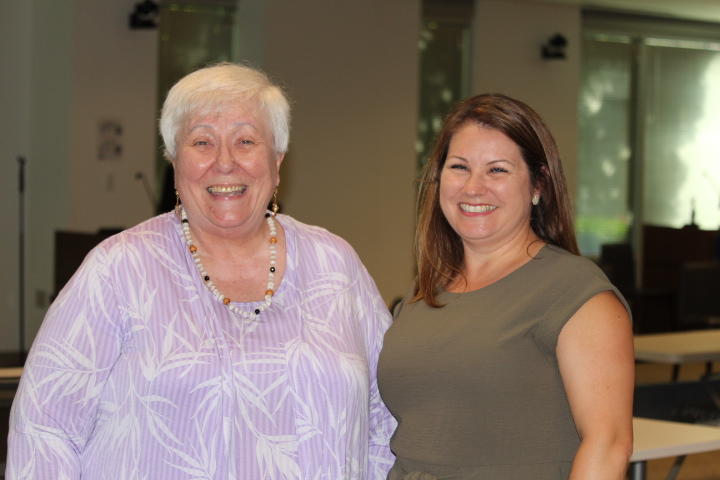
Section Branding
Header Content
Early onset dementia is making the caregiving crisis worse
Primary Content

Nancy Treaster has been taking care of her husband, Kim, for the last decade since he was diagnosed at age 60 with dementia.
“He has the same thing Bruce Willis has," Treaster said. "He has primary progressive aphasia, which is a type of frontotemporal dementia. It's actually pretty common for it to hit between 55 and 65.”
People with early onset Alzheimer’s and other dementias, who require long-term care services, face high out-of-pocket expenses that, depending upon their age and financial circumstances, may not be covered by Medicaid, Administration on Aging programs or other programs that pay for long-term care services for some people aged 65 and over with dementia.
Early-onset dementia rates are increasing, but there isn’t enough data available on the number of affected people or their conditions.
Treaster cut back on her work hours when Kim’s cognitive ability began to decline and, when her 90-year-old father-in-law's Alzheimer's dementia progressed to the point where he could no longer drive, she retired at age 62.
“I loved my job and worked there 26 years, but, at the same time, it was time to give it up,” she said.
Many caregivers believe they had no choice in taking on the role of caregiver, often leaving the workforce, according to a national Alzheimer’s Association poll.
Treaster doesn’t mind caregiving for Kim and his parents who live 3 miles away.
She does their grocery shopping, drives them to appointments and helps take care of both households, but she has part-time paid caregivers at both houses.
At times, Kim Treaster lets his wife know how he feels.
“I know he loves me because he'll tell me, ‘I like. Like. Like you,’” Treaster said. “And I don't know if he loves me because I've been here four years, and I'm his caregiver for four years. Or if he knows that he's been married to me for 34 years.”
RELATED:
- Alzheimer's Association report says 1 in 5 women and 1 in 10 men will be diagnosed with dementia
- Some communities have a higher risk of undiagnosed cognitive decline that could lead to dementia
- Informal family and unpaid caregivers often sacrifice pay, benefits and their own health
Unpaid family caregiving is incredibly tough emotionally and physically, but when Treaster broke down over lunch with friends one day, she learned her friend, Sue Ryan, was caring for her husband who had dementia.
“I called Sue and then she became sort of my lifeline for the next few years,” Treaster said. “I would be in the middle of something and think, I have no earthly idea how to handle this. I'd call Sue. And she was great. But not everybody's got a Sue, right?”
The women started a podcast called The Caregiver’s Journey to share their knowledge and tips for dementia

caregiving, like dressing someone who is incontinent in snap-up pants.
Other tricks they share on the podcast include childproofing the home.
“He doesn't know how to open those childproof doorknob covers,” Treaster said. “Heck, most of my friends don't know how to open the childproof doorknob.”
The podcast provides practical advice about what to do when someone with dementia wanders or struggles with anxiety and fear.
The Caregiver’s Journey has not yet covered the importance of taking care of oneself, too.
“You know, in your role as a caregiver, you're grieving inside,” she said.
Why is there a shortage of paid caregivers?

Almost 20% of Georgia's population is older than age 60, and about 10% of the state's seniors are living alone, but only about seven caregivers exist for every 100,000 residents, according to data analyzed by The Mesothelioma Center.
There are not enough caregivers available for the baby boomer demographic group, whose members over age 65 grew from 41 million people in 2011 to 71 million in 2019 — a massive 73% increase.
The U.S. Census Bureau estimates this number will keep rising, projecting it will reach 82 million by 2030.
Consistently low-paying jobs contribute to the current caregiver shortage occurring across the country. The median hourly wage for direct care workers in 2020 was $13.56.
Georgia's average hourly wage for professional caregivers in 2020 was $13.84.
The value of respite care
Dr. Ambar Kulshreshtha is an associate professor of family and preventive medicine at Emory University School of Medicine and the lead author of a study on undiagnosed cognitive decline.
"As a clinician, I find when patients are forgetting to take their medication, their other conditions get worse," he said. "Their heart failure gets worse; their diabetes gets worse."
Kulshreshtha also works as an advisory board member for Georgia Memory Net, a state-funded program led by Emory to promote early and accurate Alzheimer’s diagnosis through primary care.
The Guiding an Improved Dementia Experience (GUIDE) model supports people with dementia and their unpaid or family caregivers.
This GUIDE model differs from the current model by covering respite for unpaid caregivers, caregiver education, support groups, and 24/7 access to a clinical team and adjusts payments based on quality of care and caregiver outcomes, Carolyn Clevenger, founder and director of Emory Integrated Memory Care, and professor at the Nell Hodgson Woodruff School of Nursing, said.
Medicare is also covering home care, respite and a few other types of respite, for the first time at 400 participating sites across the nation, Clevenger said.

Sharon Hall of Decatur said GUIDE helped her tremendously with respite from caring for her husband, Rod Hall, who was diagnosed in 2016 with frontotemporal dementia (FTD).
He was 63.
“People as young as 20 can have frontotemporal dementia,” Hall said. “It's also fatal, just like Alzheimer's. It's a progressive disease. No treatment; no cure. And I'm his 24/7 care partner.”
Rod Hall began making rude comments in person and engaging in inappropriate behaviors online in 2014, and Sharon Hall thought their marriage was in trouble.
“It was relief because I thought, 'Gee, he didn't turn into a jerk that I have to divorce,’” Hall said.
But her husband could no longer work, and he was not yet eligible for Medicare, so the couple had to pay his employer out of pocket — his portion and their portion — until Medicare kicked in.
More than half of the state’s population receives health insurance benefits from an employer.
His short-term disability insurance helped close that gap, she said.
“That two years, for any family that's under the age of 65, it destroys them," Hall said. "People lose their homes; they lose their savings. They lose their children's future because they don't have health care.”
Hall did not have employment income either because she previously retired to care for her mother, who developed vascular dementia and died in 2019.
Studies show that many caregivers exhaust their savings and end up with credit card debt, which is especially true when they cannot afford their out-of-pocket costs despite having health insurance. Then, caregivers start cutting out the things they need.
The prevalence of depression is higher among dementia caregivers than other caregivers, making respite care crucial.
Hall said that, before the GUIDE program, she paid out-of-pocket for adult day care, which wasn’t sustainable.
Clevenger clarified that only people with traditional Medicare — not Advantage — are eligible.
“GUIDE is a Medicare innovation center program; it's a demonstration project being tested for the next eight years to see that it works and that it accomplishes the outcomes that they think that it will,” Clevenger said.
That first and most important piece is getting that dementia diagnosis.
There is no quick or easy fix to the caregiving crisis and the shortage of paid caregivers. But as awareness around the many forms of early-onset dementia grows, so does the likelihood that more diagnoses will lead to greater understanding of and availability of much-needed care.
This article was written with the support of a journalism fellowship from The Gerontological Society of America, The Journalists Network on Generations and The Commonwealth Fund.

